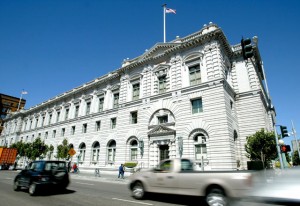MINA KIM: Professor Amar, this question of whether sexual orientation is protected the same way race and gender are in jury selection is actually part of a case that involves two pharmaceutical companies who produce HIV medicines.
Abbott Laboratories and SmithKlineBeecham are the two companies involved in the case, and SmithKline is being joined by gay-rights activists Lambda Legal and other groups in saying that the juror was wrongfully removed. What are their arguments about the harm that's being done here?
VIK AMAR: It's in the context of a case between two companies that was already in court – being fought over – that one of the lawyers for one of the parties exercised a peremptory challenge and more or less admitted that it was based on sexual orientation. The other party in the case cried foul, and is now asking the court to prevent that from being put into effect.
You might ask, "Well, why does it really matter?" And I think it does matter because being able to serve on juries is very important symbolically of full citizenship in the United States. Jury service has always been conceived in American constitutional history as being very closely related to voting in elections. And so when you say to a group you're able to be excluded from jury service because of some characteristic, you're basically saying that that group is not going to have as big a say in helping shape and fashion and implement the laws under which we all live.
KIM: What do lawyers for Abbott Laboratories, the company that removed the juror, say about why they did it?
AMAR: Well, it's unusual for a lawyer to admit a basis for a peremptory challenge that is arguably constitutionally problematic. For example, in the context of race or gender, even when a lawyer exercises peremptory challenges that conform to a pattern of racial or gender removal, they will often explain their peremptory challenges on grounds that have nothing to do with race and gender. It's like, "Oh, I removed that guy not because he was African-American but because he had a mustache. And I removed that woman, not because she was Latina, but because she was short."
So one of the unusual things in this case is that the lawyer more or less conceded that sexual orientation was on his or her mind when the peremptory challenge was being invoked.
KIM: The judges reportedly gave little indication today of how they'll rule on this question of sexual orientation. Whatever they do will be a big deal though, I imagine.
AMAR: It will. It will garner some headlines. You know, this is not the most significant constitutional issue that is percolating in the courts and even within the gay/lesbian rights movement. It's not probably as important as gay marriage, but I would say it does have tremendous symbolic significance because of its tie to full and equal citizenship.
And I would also add that if the courts decide that it is improper to exclude a juror because of his or her sexual orientation on the theory that discrimination against people who are gay or lesbian is presumptively, constitutionally wrong, then that reasoning would have relevance and application to the same-sex marriage context, which is why the Supreme Court, if it were to grant review of this Ninth Circuit case, and I'm not saying it would, but if were to grant review of the Ninth Circuit case, it would realize that anything it said in this area would have implications for the marriage arena as well.

